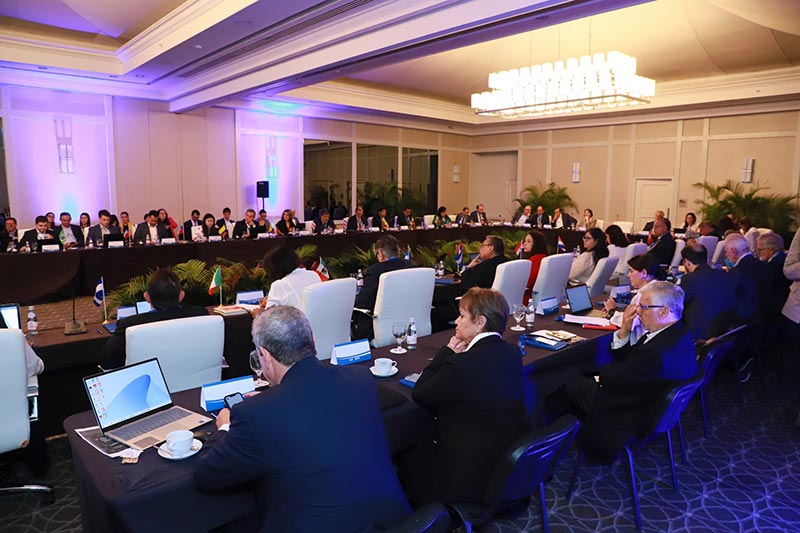

In early December, IDB’s Integration and Trade Sector organized a dialogue in Panama with high-level officials from Latin America and the Caribbean. The objective was to exchange ideas and experiences regarding the challenges and opportunities regarding agri-food trade in the region and to provide perspective on the current scenario with recent data.
According to the IDB’s Trade and Integration Monitor report, the region accounts for 14% of global food production, making it the world’s leading net food exporter. This also represents 18% of total food shipments.
Over the last two decades, the share of agricultural exports has increased from 15% to 25% of the region’s total exports, underscoring the sector’s importance in the regional economy.
Despite this potential, the region faces challenges ranging from food insecurity to the need to adapt to climate change and transform its food systems sustainably.
The IDB’s analysis also indicates a loss of competitiveness in the global market, with a differential growth in agro-industrial exports that could have been 72% higher.
The meeting to address these challenges and opportunities involved representatives from Argentina, Brazil, Chile, Colombia, Costa Rica, Ecuador, El Salvador, Honduras, Mexico, Nicaragua, Paraguay, Panama, Peru, the Dominican Republic, and Uruguay.
During the meeting, a public-private dialogue focused on the needs of companies to increase opportunities related to sustainable agri-food trade and how to attract more investment.
The discussion panel featured the participation of Merlyn Casanova, Executive Director at the Ecuador National Association of Cacao Exporters; José Perdomo, President and CEO CropLife Latin America; Camilo Montes, Executive Director of the Food Industry Chamber, National Business Association of Colombia -ANDI; Cledio Roberto Marschall, CFO, LAR Cooperative (Brazil); and Pablo Vargas, Chairman of Café Britt (Costa Rica).
